 Transvulcania 2013 je minulostí. Co odpověděli vítězové na dotazy serveru iRunFar ?
Transvulcania 2013 je minulostí. Co odpověděli vítězové na dotazy serveru iRunFar ?
Následují videa a přepisy rozhovorů.
Kilian Jornet
Přepis rozhovoru
iRunFar: Bryon Powell of iRunFar here with Kilian Jornet after your Transvulcania win. Congratulations, Kilian.
Kilian Jornet: Thank you very much.
iRF: This year’s race was a very dynamic race. Early in the race, Sage (Canaday) went out ahead, yes?
Jornet: Yes, he went out very strong. We were knowing that was going to happen because he was telling that and with all the races that he does and he ran with Cameron (Clayton). We knew he was going to start really strong. It was not a surprise. If they go two or three minutes in front, it’s okay. We were racing with Luis Alberto (Hernando)and Miguel Caballero, but yes, they started sprinting. It was like, “OKAY! They keep this pace to the finish they will break the record in four hours.”
iRF: So you didn’t worry about them?
Jornet: No. We were thinking that and then I was thinking that Sage could be first on the uphill, but on the downhill, they’re not really technical downhillers. So we knew on the downhill that we could catch them.
iRF: You caught them before the downhill.
Jornet: Yes, I think he pushed a bit too much. After El Pilar we started running a bit faster with Cameron and Luis on the flat. Then we saw Sage at the beginning of the uphill. During the uphill, we started running a bit harder with Luis and we caught him. Then the surprise was that Luis did an awesome attack. He started run really, really, really fast for the last 8k of the uphill. I said, “Oh, this is going to be hard!”
iRF: So that was more of a threat.
Jornet: Yes, because I know Luis well. He’s a good uphiller, and he’s not bad in the downhills. He can run fast. I don’t know how he was in the long distance because it was his first ultra. It’s awesome to finish like that. I was thinking that two or three minutes behind Luis in the downhill was okay.
iRF: You caught him how far after Los Muchachos?
Jornet: In the middle of the downhill, maybe 7k downhill, I caught him. I wanted to be really conservative during the race to not take risks because I remembered last year was super warm in the last part. I was running not easy but not hard and not pushing during the uphill. I was drinking, drinking, and I carried water almost the whole time.
iRF: You? Kilian Jornet had water?
Jornet: Yes! Almost half of a liter during the whole time.
iRF: Half of a liter?
Jornet: It was good, I think. Then it was running fast, but never pushing, pushing, pushing. When I started the downhill I finished my drinks and said, “Okay, now it’s time to go fast.”
iRF: So you felt that once you hit Tazacorte with 6k to go, you felt confident that you could run ahead?
Jornet: Yes, when I passed Luis Alberto I knew that he was not this good on the downhill and he started to be tired. I know that I was a bit afraid of the flat part before the uphill because I knew on the uphill I would to be well. But on the flat, I really don’t run because it’s just the beginning of the season. I’ve run six days, but I always run on the uphill. We ran one day here flat so I was feeling really bad on the flats yesterday. I was afraid about this two or three kilometers, but then I had 1.5 minutes in front of him. So it was okay.
iRF: That was a good barrier or cushion. I’ve seen you race many times now. You looked energy-wise okay all race, but I’ve never seen tired like you were when I saw you at Mirador del Time. It looked like your quads were tired on the downhill.
Jornet: Yes, this downhill is super long. It’s 20k of downhill. When it’s technical it’s okay because you can pause, but when it’s a road like this it’s like, “I don’t want to run this.” Then, sure you can run really fast and you can save lots of time but then you are lost because the time you run there and your legs are destroyed for the uphill and for the flat. That’s why I didn’t want to push my legs and then on the technical part, just to push it. That is the warmest part of the race and there’s a lot of heat there so it started to be warm so I need to take care.
iRF: You have a famous list of races that you want to race and win and you checked them off. Last year you came to La Palma and Dakota (Jones) and Andy (Symmonds)beat you. If you go to a race and you don’t win, does it make you want to go back and try to?
Jornet: Not all the races, but here last year it was a really hot race for me. Dakota and Andy had super good races. People here share a lot in me. The ambiance and the organization are so nice. I need to come back and wanted to win it not for me but for all the people on the island. Naturally it’s nice to have victories, but it’s nice to spend a week here with all the runners to share with the people.
iRF: To share in the beach?
Jornet: Yes, to share in the beach. It’s good after the winter to go in the warm holidays. So a week here at the beach… yeah. It was a good race, but still a good week.
iRF: You’ve spent almost a week here now. What have you enjoyed most about the island?
Jornet: Yes, being in the warmth is good sometimes. It’s a beautiful island. Yesterday in the morning when we first went up the volcano, the sunrise was awesome with the landscape. We saw all the islands all around. The light was incredible colors with the rocks and the green trees. Wow, I wanted to stop here and stay until the sun was higher to just enjoy the moment, but not the other runners. So we needed to keep running.
iRF: So you’ll enjoy it today?
Jornet: Yeah, maybe today is going to be a relaxed day—maybe the beach.
iRF: Maybe only two or three hours of training today?
Jornet: Maybe not this much. It’s different.
iRF: Maybe a little swim?
Jornet: Maybe a few meters swim because I’m really not a good swimmer. I swim more like “this.”
iRF: No triathlons in your future?
Jornet: No. No triathlons. The water when it’s solid is okay but not when it’s wet.
iRF: Speaking of solid with snow, you’re not going back on the skis this year?
Jornet: I will be in Chamonix on Tuesday and a lot of friends say the snow is super good, so we need to go to Mont Blanc with the skis next week and then we have some couloirs to do and then in June it’s still possible. All May it’s good and a mix of both.
iRF: What races or projects are you really excited about this year?
Jornet: More races. It’s nice to do Zegama which is going to be the sixth time. I’ll do other races like Ice Trails Tarantaise, a route I’ve never raced before. Also in AmericaUROC is going to be exciting because the level of competitors and then Cameron and Sage are going to be very strong there.
iRF: Especially with it less technical there.
Jornet: Yes, it’s going to be exciting. Then the most focusing thing for the summer is in “Summits of My Life” which are the Mont Blanc record and the Matterhorn record.
iRF: That’s this year?
Jornet: Yes. Matterhorn is going to be hard because it’s really fast and it’s technical. When I talked with Bruno Brunod who has the record, he told me that in the downhill he took a lot of risks. The risk there is not to break a leg. The risk there is to disappear. I need to train a lot. It’s good.
iRF: Is the climbing also technical?
Jornet: Yes, it’s like a Fourth Class climb. I think what it is in American, I don’t know, but maybe 5.7 or 5.8 for 2000m.
iRF: Do you use ropes?
Jornet: No, just some ropes in the last part, but not so much.
iRF: Is it similar to the Grand Teton?
Jornet: Maybe the last part of the Grand Teton but for 2000m so it’s big and beautiful. It’s huge.
iRF: Do you put in a lot of training in that?
Jornet: Yes, I’m going to train a lot in Cervinia and in the ropes to know when it’s steep how it works.
iRF: Different than just going out and running Teton.
Jornet: Yes, different to be prepared but I like to… I think the fun thing is to race. Last week the skimo race, this week the running race… next week I don’t know maybe the couloir things… then Zegama. I like the change. It’s nice.
iRF: You’re going back to Zegama for the sixth time. What is so special about Zegama?
Jornet: I think it’s because I know the people there for six years. It was the first year I ran and I was really young. The race organization I know everyone—it’s like my family. It’s beautiful, it’s technical, it’s almost always cold. One year it was warm, but it’s almost always snowing or raining. So I like that, too.
iRF: Do you think after yesterday you have the “running in the heat” thing figured out?
Jornet: I think every year I improve more and know how to drink and run easy for some kilometers.
iRF: So maybe we’ll have you back at Western States one of these years?
Jornet: Yeah, maybe. I’m not sure. It’s going to be interesting one year.
iRF: Congratulations on your win yesterday and good to see you again.
Jornet: Thanks a lot, Bryon.
Emelie Forsberg
Přepis rozhovoru
iRunFar: Bryon Powell of iRunFar here with Emelie Forsberg after her win at the 2013 Transvulcania Ultramarathon. How are you, Emelie?
Emelie Forsberg: I’m better than I thought I would be today.
iRF: Why is that?
Forsberg: My legs just feel okay. I thought they were going to be destroyed. They’re tired but not destroyed.
iRF: Maybe tomorrow?
Forsberg: Hope not. We’ll see.
iRF: It was a 50-mile effort. It was hot. Does the rest of your body feel okay, too?
Forsberg: Yes, I feel okay.
iRF: That was your fourth 50-mile race. Do you think it was your best 50-mile race?
Forsberg: I think so. I felt so good the whole time. I think I did a smart race. I didn’t go out too fast. I always had Nuria (Picas) was behind me on the uphill. I felt that I wanted to see where she was. Sometimes I made some more minutes, but I knew where she was. That’s nice for your mind to not get worried—Is she trying to catch me? Does she have more power? I saved power, I think. I didn’t push all the time so if she caught me, I knew that I was going to follow her.
iRF: You had more left.
Forsberg: Yes.
iRF: When did she catch you during the race?
Forsberg: Yes, because sometimes I wanted to run with her. It’s nice to run with someone, but sometimes it’s also nice to just run by yourself and get in the pace and everything. It’s nice to have that mix.
iRF: I saw you at 34k with Nuria. Was she ever ahead of you? Did you always stay with her?
Forsberg: In small parts of the uphill, she was in front. Mostly I was a bit in front of her on the hills. On the long downhill, she was in front the whole time.
iRF: Did she ever put more than a couple seconds on you?
Forsberg: No we were running [together] because we didn’t want to push the downhill. We said it’s early in the season and we have nothing to… we were close to the record, but we didn’t want to push. We just wanted to get down and not destroy ourselves.
iRF: You had an agreement not to… or an understanding?
Forsberg: Almost, I think we had an understanding.
iRF: You came into Tazacorte together?
Forsberg: Yes, she was some seconds in front of me, but we were together.
iRF: Then did you make a strong move on the climb or on the flat?
Forsberg: Yes, we were together and I finished some six minutes in front of her. It was 6k? I feel strong in the uphills this season.
iRF: Did you run up the road climb?
Forsberg: Yes.
iRF: The one that everyone else walks?
Forsberg: I think I’m in the mode of small running instead of big steps.
iRF: You’re used to the mountain running with the steeps and small steps.
Forsberg: Yes. I felt tired, but when the people start cheering for you, you get more energy.
iRF: What is the atmosphere like here at Transvulcania?
Forsberg: It’s amazing. It’s almost like Zegama, but I think this is even more maybe because it was sunny and more people were out.
iRF: Zegama was 0 C and snow and rain.
Forsberg: Amazing. And the ridge we were running on was so beautiful and we got to see the sunrise.
iRF: That sunrise was unbelievable.
Forsberg: Yes, you saw it. It was super beautiful. It’s so amazing that there are so many people that love trail running. It’s amazing.
iRF: And love nature and love being outside. Were you running with any men for any long period of time?
Forsberg: Not for a very long time. Some guys came and left and came back.
iRF: Not for 10 or 20k.
Forsberg: No, it was me and Nuria for the whole race.
iRF: Did you have any low points during the race?
Forsberg: Not really. I felt very comfortable the whole race. That’s why I’m happy about it because I think I managed it the way I wanted to.
iRF: To have that control…
Forsberg: Yes. It’s a new feeling. I hope I will feel it again, but you never know.
iRF: It’s magic when it happens.
Forsberg: Yes, it just felt really good.
iRF: Going into the race, you were worried about the heat. How did that aspect of the race go?
Forsberg: It was warm. I had salt pills but I lost them. I was so worried because I sweat a lot especially this early in the season. I had a lot of water with me. I think I had almost one liter in between the aid stations and I poured myself with water. I didn’t drink so much. Then I met Joe Grant and he had two extra salt pills, so he saved my race. Thank you, Joe!
iRF: What’s up next for you?
Forsberg: Zegama.
iRF: What’s after that?
Forsberg: Mont Blanc Marathon and some small races in Sweden.
iRF: You’re going to go race in Sweden? Is that exciting? Here you are on the world stage, literally, and there are huge crowds. What’s it like when you go home and race a small race in Sweden?
Forsberg: I like it. I almost have more pressure there because people think I’m going to be so good. In Sweden the trail running is pretty flat and it’s not my specialty, but I do it because it’s fun. It’s the Salomon Trail Tour and I like to do that.
iRF: Here everyone knows you because you’re one of the best in the world. There everyone knows you because you’re Emelie from Sweden.
Forsberg: Exactly.
iRF: Now that you’ve run four 50-mile races, do you have any advice for people moving up from the shorter races?
Forsberg: I think it’s important to do the slow progress. If you’ve run a half marathon, maybe you can run a 35k and maybe one more, and then maybe a marathon, then maybe 50k. Take it slow. If you just go from marathon to a 50-miler, it can be… of course it’s possible, but I think it’s more convenient for you if you do it slow. I think you have more pleasure with it.
iRF: Don’t rush it. Well here we are on La Palma, a very relaxed island. Don’t rush your day and enjoy it.
Forsberg: Thank you!


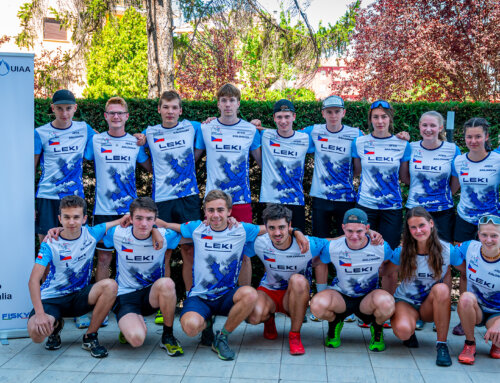
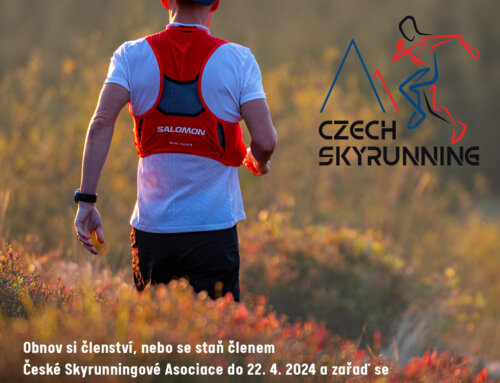
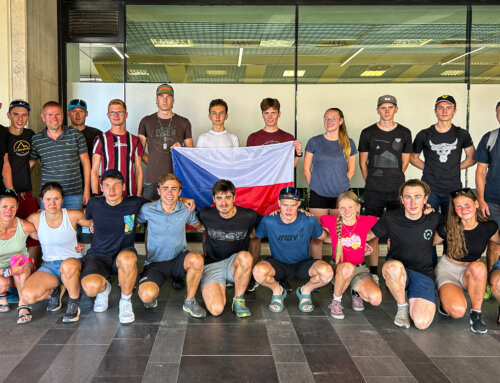
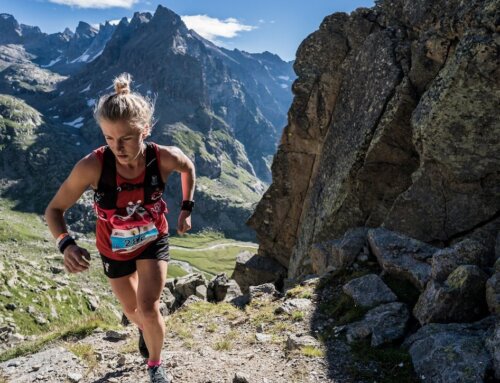
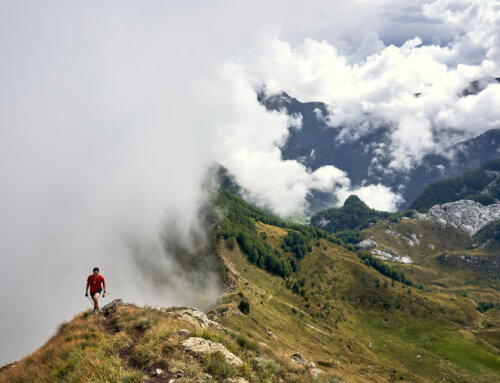
Napsat komentář